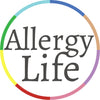Hypersensitivity type may be- Type I Allergy
Immune reactions may be from- IgE
Reactions may occur in- Minutes
Pollen is a fine powdery substance that is typically yellow, consisting of microscopic grains discharged from the male part of a flower or from a male cone on the plant.
A Pollen Allergy occurs when there is an immune response to pollen from grasses, weeds or trees, with trees usually pollinating in late winter and early spring.
A Pollen Allergy commonly triggers Allergic Rhinitis (also called Hay Fever). This can lead to symptoms that may include sneezing, a runny nose, a blocked or itchy nose, and watery or itchy eyes. Pollen Allergies may also aggravate Asthma, including Thunderstorm Asthma, a type of Asthma triggered by Pollen.
A Pollen Allergy is an environmental allergy and can occur all year-round. However, it is also a seasonal allergy that can have a higher occurrence during certain seasons such as spring and summer. A Pollen allergy can also have increased symptoms based on the type of pollen the person is allergic to and based on where they live.
For people with a Pollen Allergy, it is not just in the air they may breathe, but also in the food they may consume and surfaces they may come in contact with. Pollen allergies may also trigger Oral Allergy Syndrome (OAS) also known as Pollen Fruit Syndrome or Pollen Food Syndrome.

SYMPTOMS
Some of the symptoms may be characterised by:
- Allergic Rhinitis (Hay Fever)
- Nasal congestion
- Sinus pressure, which may cause facial pain
- In a child, frequent upward rubbing of the nose
- Runny nose
- Sneezing
- Scratchy throat
- Itchy ears, throat and roof of the mouth
- Cough
- Swelling beneath eyes
- Decreased sense of taste or smell
- Interrupted sleep
- Irritable, itchy, watery and red eyes
- Asthma
- Anaphylaxis
The validity and severity of these symptoms are dependent on the individual and the level of exposure, as determined by a qualified health care provider.
TREATMENT
If you experience or are in the presence of someone who encounters a serious reaction (this may include difficulty breathing, wheezing, throat tightening, swelling, collapse, etc), follow their action plan or emergency instructions and call or have someone call Triple Zero (000) immediately.
Adrenaline (Epinephrine) is the first-line treatment for Anaphylaxis. After administering Adrenaline (Epinephrine), seek emergency medical attention by calling Triple Zero (000) for an ambulance.
If you are unsure what to do, call Triple Zero (000).
If you or someone you know is suspected of having an allergy, it’s important to discuss diagnosis, symptoms and treatment with a qualified health care provider to understand how to manage individual allergies and also to set up an Allergy Action Plan in the case of a reaction.
Always present your Allergy Card, Medical Alert Bracelet, Action Plan or Necklace to ensure health care providers, family members, friends, colleagues and others are aware of your Allergies.
Provided through qualified healthcare providers, Immunotherapy or "desensitisation" is a treatment option conducted for Allergen-specific desensitisation. In some instances, it may make a person less allergic or more tolerant to the substance they are allergic to. Immunotherapy isn't a cure and usually doesn't make the symptoms disappear entirely, but it has been shown to reduce the symptoms. Speak to a qualified healthcare provider to learn more.
Click here to read about some steps to manage your Pollen Allergies
TESTING
A skin prick test or Specific IgE Blood test may be used to test for a Pollen Allergy.
LABELLING
Some labels or terms you may come across on Pollen Allergy friendly products:
"Hypoallergenic" "Pollen Remover" "Pollen Free" "Pollen Reducer"

RANDOM ALLERGY FACT
Pollen is edible. Bees, even Spiders and a lot of other insects eat pollen. Humans also collect Pollen to use it in food, such as the Korean dessert Dasik.
The information provided on Allergy Life Australia is to generally educate and inform you about living with allergies, intolerances and conditions, and is not intended as medical instruction or as a substitute for diagnosis, examination and advice by a qualified health care provider.




